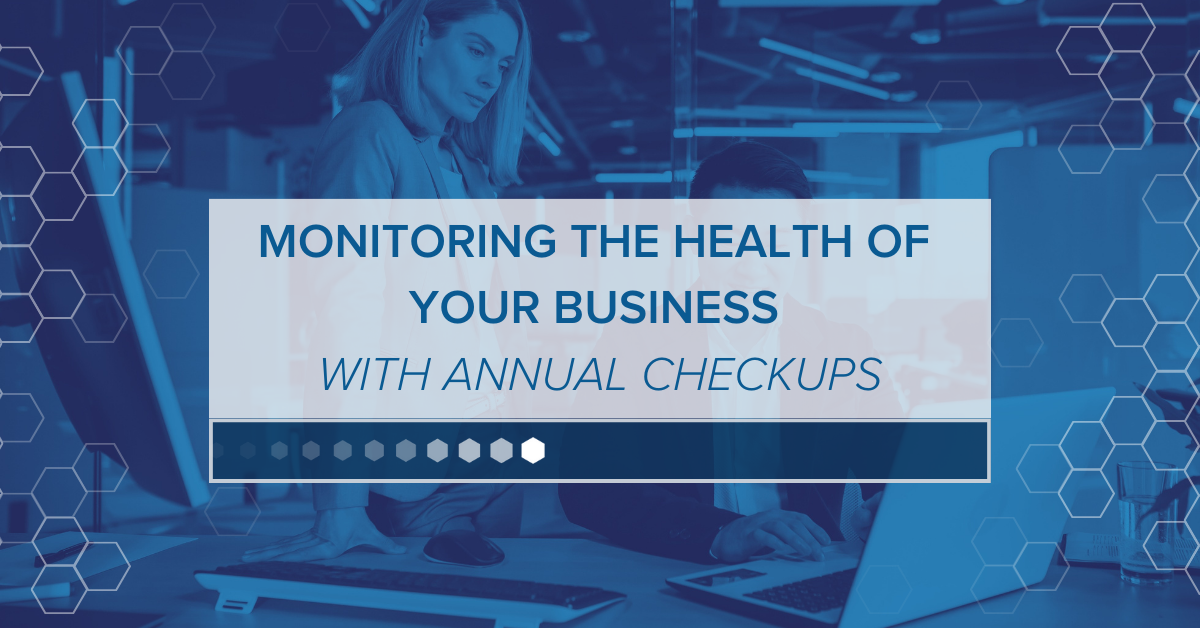Despite the continued surge of wealth management M&A activity, one surprising fact remains: most of these market participants are engaging in a transaction for the very first time. While there are aggregators and larger RIAs that will continue to build up their business through strategic acquisitions, the majority of today’s deals spark from a mutual attraction either from aligned competencies, or complementary competencies, that allow both firms to amplify their growth and sustainability.
According to James Fisher, Vice President of Mergers and Acquisitions at FP Transitions, “Many practices are looking to be acquired or merge with a larger business to spur growth, to benefit from economies of scale, to offload compliance and day-to-day operations, to increase bandwidth and offerings to clients, or to assist with the retirement of one or more senior owners/partners, among other reasons.”
Regardless of experience, it takes a lot of patience, communication, time, and expertise to navigate the entire deal process. For firms going through this, on any side of the table, negotiating and documenting the transaction can often be more time consuming than anyone anticipated, creating the perfect environment for an all-to-common problem: deal fatigue.
Read More
Topics:
Selling Your Practice,
Acquisition,
M&A,
Business Value,
Deal Structure,
Buying & Selling,
Mergers
.png?width=1200&name=Blog%20Header%20Image%20(4).png)
We just got back from Fort Lauderdale where we spoke at the WealthStack RIAEdge conference for WealthManagement.com. James Fisher, FP Transitions’ Vice President of M&A spoke with several advisors onsite. We wanted to take some of the questions that we received and see if we could answer them for our broader client base.
Read More
Topics:
Selling Your Practice,
Commentary,
M&A,
Business Value,
Buying & Selling

"Think about those future goals."
"Hold steady and don't react to the market."
"Remember, we have a plan and it's still well on track."
Throughout the market roller coaster of the Pandemic and now with 2022 rearing its head, advisors are getting used to coaching clients through market volatility. What matters most in these scenarios are two things: first, a trusted relationship between advisor and client, and second, preparation and education to navigate these emerging challenges.
Read More
Topics:
Succession Planning,
Selling Your Practice,
Business Value,
Sustainability,
Trends

Business growth is a never-ending, and ever-changing objective of all business owners; financial planners included. While the lingering social effects of the pandemic and the challenges of upscaling during the Great Resignation/ Reshuffle can make the task-at-hand seem insurmountable, there are still tangible ways that you can steer the course of your enterprise. Here are a few tips to help grow your financial planning business.
1. Invest in Human Capital
Most advisors have built their business from nothing into their single most valuable asset. Finding talent can be a challenge these days, especially with unemployment settling into lows not seen in over 50 years. Data from FP Transition's Valuation Database has indicated that businesses with multiple professionals accumulate assets at a higher rate than sole practitioners. As your business matures, it is imperative to invest in the next generation of talent, to keep the engine running while you begin to enjoy the reward for what you’ve built.
Read More
Topics:
Acquisition,
Multi-Generational Ownership,
Business Growth,
Tip of the Week,
Revenue Strength,
Enterprise Strength,
Business Value,
Buying & Selling,
Next Generation,
Talent Recruitment,
Building Your Team,
Client Trust,
Business Operations,
Trends
Read More
Topics:
Continuity Planning,
Webcasts,
Multi-Generational Ownership,
Organizational Structure,
Business Growth,
Tip of the Week,
Business Value,
Client Success,
Sustainability,
Client Relationships,
Business Operations
When it's time to sell your financial advisory practice, knowing the value of your business is just as important as finding the right buyer. But as you begin exploring your options, determining who will be the right buyer to take over your business often takes center stage. The FP Transitions® Open Market will not only locate a new owner who is a good fit for your clients and investment style, but also help you obtain the most value from the sale.
Benefits of the FP Transitions Open Market
Tapping into an open marketplace has benefits for both buyers and sellers. Buyers have access to a larger pool of acquisition opportunities with the potential to meet their strategic goals. This includes those outside of their already established network and area, allowing them to expand their reach. And sellers gain access to a large number of qualified buyers in order to find the best possible buyer for their business.
Read More
Topics:
Selling Your Practice,
Acquisition,
Business Value,
Buying & Selling
We're pleased to announce that FP Transitions was named one of CFO Tech Outlook's Top 10 Valuation Service Companies of 2021, recognizing FP Transitions' efforts and placing our team at "the forefront of providing Valuation consulting services and transforming businesses."
The publication accolades were accompanied by an article: "FP Transitions: Providing Comprehensive Valuation Services," featuring our Ryan Grau, CVA, CBA, Partner and VP of Business Valuation Services. The full text of which can be viewed below or by clicking here.
Read More
Topics:
Business Value,
FPT in the News,
Benchmarking,
Valuation & Appraisal

Recurring revenue is one of the most important single determinants of value. Revenue produced through management fees, trails, or renewals is ongoing and reasonably predictable. Transactional revenue is more elusive and difficult to predict. While this isn’t cutting edge news, it is important to understand that recurring revenue is more predictable and presents less risk of future earnings when compared to transactional revenue. As such, when a portion of revenue is generated from transactional revenue, buyers will require a higher rate of return (discount) when compared to other market alternatives that provide more certainty.
Rule of Thumb?
It is important to understand the difference between an adjusted pricing multiple based on the specific characteristics of the business being valued versus a “rule of thumb.” A rule of thumb for the financial services industry is that businesses sell for two-times gross recurring revenue and one-times non-recurring revenue, or that they are worth five-times Earnings Before Interest, Taxes, Depreciation, and Amortization (EBITDA). Often sellers approach us asking if the offer they have received based on a rule of thumb is sufficient or fair. This question cannot reasonably be answered without understanding the revenue characteristics of the practice.
Read More
Topics:
Business Growth,
Revenue Strength,
Business Value,
Multiples

Completing an annual valuation on your business is the financial service industry equivalent of undergoing your annual physical. I’ll turn 55 this year and I have resigned myself to the fact that prescription medications have officially become their own food group and an annual physical is no longer optional. My annual pilgrimage happens to take place in the spring tucked neatly amongst the sporadic appointments to see specialists for knees, elbows, near sightedness, far sightedness, rotator cuffs and something about my lumbar.
Now, the key word here is annual. If I had my cholesterol checked 10 years ago and then never again how am I going to know if what I am doing is working? An annual examination provides a historical record of your overall health including your vital signs enabling you to make changes in order to perform at your best. The good news is that, unlike my annual physical, your valuation results should get better as your business matures.
Your business is a living, breathing entity. Just like the investments you make on behalf of your clients, it needs to be nurtured, protected, and developed in order to realize its maximum value. It’s important that your valuation be updated annually. The monetary value of your practice is just one of many pieces of information to be gleaned from a professional business valuation.
Read More
Topics:
Acquisition,
Business Growth,
Business Value,
Exit Planning,
Continuity,
Benchmarking
/Blog%20-%20Components%20of%20a%20Deal%20-%20Refresh.png?width=1200&height=628&name=Blog%20-%20Components%20of%20a%20Deal%20-%20Refresh.png)
Whether you are buying or selling, it is important to understand what is being bought and sold and what expectations both the buyer and seller have of each other. Absent these details, it is difficult, if not impossible, to determine if an offer is fair. After all, “fair” is a relative term. The question of fairness would be easy to answer if all deals were done the same way, but the reality is they are not. Nonetheless, there are still common attributes to most deals that can shed light and aid in understanding the underlying terms. This in turn helps both buyer and seller assess the reasonability of an offer.
Read More
Topics:
Business Value,
Deal Structure,
Buying & Selling,
Trends in Transactions Study,
Transactions

.png?width=1200&name=Blog%20Header%20Image%20(4).png)


/Sustainability%20Blog%20Image%203-01.png?width=512&name=Sustainability%20Blog%20Image%203-01.png)


/Blog%20-%20Components%20of%20a%20Deal%20-%20Refresh.png?width=1200&height=628&name=Blog%20-%20Components%20of%20a%20Deal%20-%20Refresh.png)